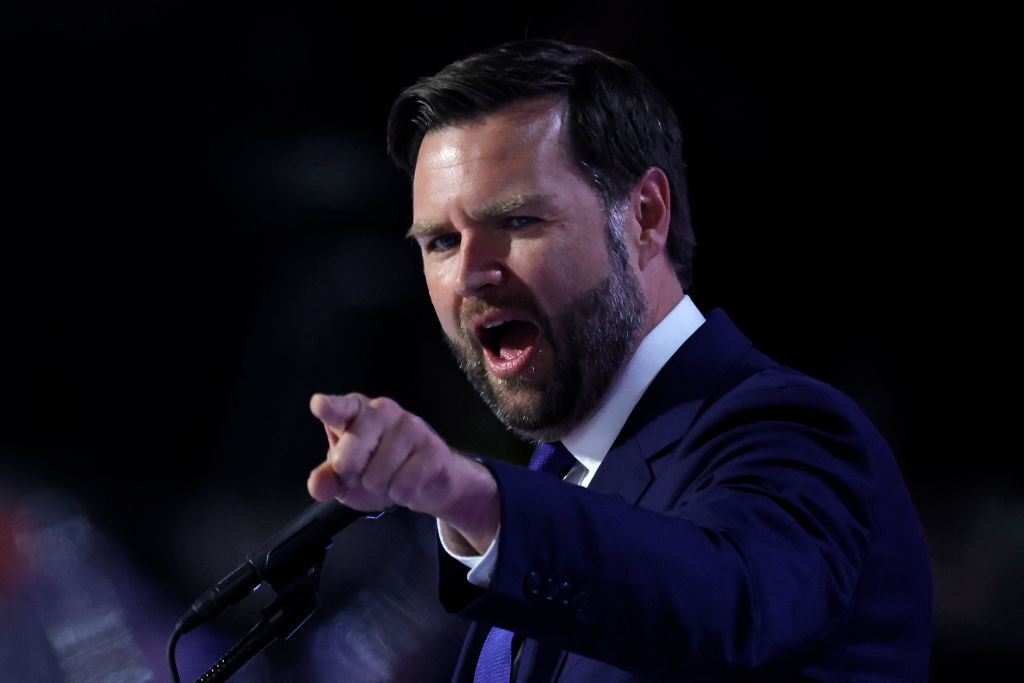Scott
Verified User
Interesting article from UnHerd I read just now. It can be seen here:

 unherd.com
unherd.com
Quoting from the introduction and conclusion of the article:
**
“It’s not good for Europe to be the permanent security vassal of the United States.” So says JD Vance during a phone conversation with UnHerd on Monday, his first major interview with a European outlet since taking office as Vice President. The backdrop is a week of turmoil on financial markets triggered by President Trump’s “Liberation Day” tariffs.
The decision to apply (and then partially rescind) hefty tariffs on European allies — combined with a barrage of harsh statements about Europe from Vance, both public ones and leaked private messages — has left many on the Continent wondering whether America can still be thought of as a friend.
Vance’s answer: yes, provided European leaders are prepared to assume a more independent role on the international stage, and to be more responsive to their own voters, especially when it comes to the question of immigration.
“I love Europe,” Vance tells me in a wide-ranging interview from his office in the West Wing, showcasing a diplomatic side that has not always been front and centre. “I love European people. I’ve said repeatedly that I think that you can’t separate American culture from European culture. We’re very much a product of philosophies, theologies, and of course the migration patterns that came out of Europe that launched the United States of America.”
Europe’s leaders are a different matter. Take Ukraine’s President Volodymyr Zelensky, who, in a recent interview with the American TV programme 60 Minutes, charged Vance with “somehow justifying” Russia’s invasion of his country.
Vance counters this by referring to his condemnations of Moscow’s actions since 2022. But he adds: “I’ve also tried to apply strategic recognition that if you want to end the conflict, you have to try to understand where both the Russians and the Ukrainians see their strategic objectives. That doesn’t mean you morally support the Russian cause, or that you support the full-scale invasion, but you do have to try to understand what are their strategic red lines, in the same way that you have to try to understand what the Ukrainians are trying to get out of the conflict.”
“I think it’s sort of absurd for Zelensky to tell the [American] government, which is currently keeping his entire government and war effort together, that we are somehow on the side of the Russians.” That kind of rhetoric, Vance says, “is certainly not productive”.
Beyond Ukraine, the American Vice President worries that European leaders are still failing to reckon with 21st-century realities on immigration, integration, and security.
[snip]
Even as adjustments and delays to tariffs seem to have soothed markets and allies, for now, the Trump administration is bent on applying its brand of shock therapy 2.0 to the international system. The goal, of course, is nearly the diametrical opposite of the original therapy: while shock therapy 1.0 goaded the world to follow America into adopting neoliberal globalisation and to follow Washington on its military adventures, this one is aimed at reversing both outcomes.
Yet it can be no less discomfiting to live through the change — not just in the policy orientation, but how it’s communicated: not least by a very-online Millennial Vice President who revels in online debate. Does he think he tweets too much? Eyebrows were certainly raised in Europe when he took the time to get into a Twitter dispute with podcaster Rory Stewart.
Vance laughs. “There are many blessings to this job. One unquestioned downside is that I very much live in a bubble. I’m surrounded by Secret Service agents. It’s very hard for a random person to walk up to me — in fact, it’s damned-near impossible. I see social media as a useful, albeit imperfect, way to stay in touch with what’s going on in the country at large… I probably spend way less time on Twitter than I did six months ago, and that’s probably good for me.”
All told, the Trump-Vance administration’s commitment to turning the page on globalisation as we knew it runs deeper than allies and adversaries alike might imagine. As Vance says: “We’re not on anybody’s side, we’re on America’s side.”
**

JD Vance: My message to Europe
Quoting from the introduction and conclusion of the article:
**
“It’s not good for Europe to be the permanent security vassal of the United States.” So says JD Vance during a phone conversation with UnHerd on Monday, his first major interview with a European outlet since taking office as Vice President. The backdrop is a week of turmoil on financial markets triggered by President Trump’s “Liberation Day” tariffs.
The decision to apply (and then partially rescind) hefty tariffs on European allies — combined with a barrage of harsh statements about Europe from Vance, both public ones and leaked private messages — has left many on the Continent wondering whether America can still be thought of as a friend.
Vance’s answer: yes, provided European leaders are prepared to assume a more independent role on the international stage, and to be more responsive to their own voters, especially when it comes to the question of immigration.
“I love Europe,” Vance tells me in a wide-ranging interview from his office in the West Wing, showcasing a diplomatic side that has not always been front and centre. “I love European people. I’ve said repeatedly that I think that you can’t separate American culture from European culture. We’re very much a product of philosophies, theologies, and of course the migration patterns that came out of Europe that launched the United States of America.”
Europe’s leaders are a different matter. Take Ukraine’s President Volodymyr Zelensky, who, in a recent interview with the American TV programme 60 Minutes, charged Vance with “somehow justifying” Russia’s invasion of his country.
Vance counters this by referring to his condemnations of Moscow’s actions since 2022. But he adds: “I’ve also tried to apply strategic recognition that if you want to end the conflict, you have to try to understand where both the Russians and the Ukrainians see their strategic objectives. That doesn’t mean you morally support the Russian cause, or that you support the full-scale invasion, but you do have to try to understand what are their strategic red lines, in the same way that you have to try to understand what the Ukrainians are trying to get out of the conflict.”
“I think it’s sort of absurd for Zelensky to tell the [American] government, which is currently keeping his entire government and war effort together, that we are somehow on the side of the Russians.” That kind of rhetoric, Vance says, “is certainly not productive”.
Beyond Ukraine, the American Vice President worries that European leaders are still failing to reckon with 21st-century realities on immigration, integration, and security.
[snip]
Even as adjustments and delays to tariffs seem to have soothed markets and allies, for now, the Trump administration is bent on applying its brand of shock therapy 2.0 to the international system. The goal, of course, is nearly the diametrical opposite of the original therapy: while shock therapy 1.0 goaded the world to follow America into adopting neoliberal globalisation and to follow Washington on its military adventures, this one is aimed at reversing both outcomes.
Yet it can be no less discomfiting to live through the change — not just in the policy orientation, but how it’s communicated: not least by a very-online Millennial Vice President who revels in online debate. Does he think he tweets too much? Eyebrows were certainly raised in Europe when he took the time to get into a Twitter dispute with podcaster Rory Stewart.
Vance laughs. “There are many blessings to this job. One unquestioned downside is that I very much live in a bubble. I’m surrounded by Secret Service agents. It’s very hard for a random person to walk up to me — in fact, it’s damned-near impossible. I see social media as a useful, albeit imperfect, way to stay in touch with what’s going on in the country at large… I probably spend way less time on Twitter than I did six months ago, and that’s probably good for me.”
All told, the Trump-Vance administration’s commitment to turning the page on globalisation as we knew it runs deeper than allies and adversaries alike might imagine. As Vance says: “We’re not on anybody’s side, we’re on America’s side.”
**






